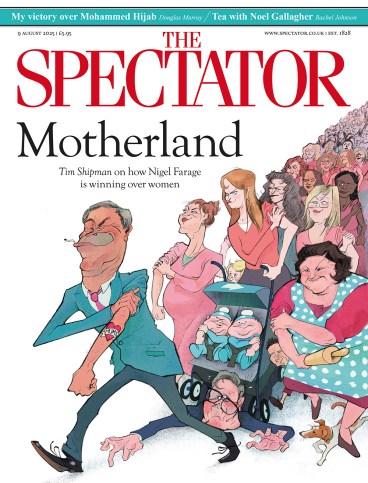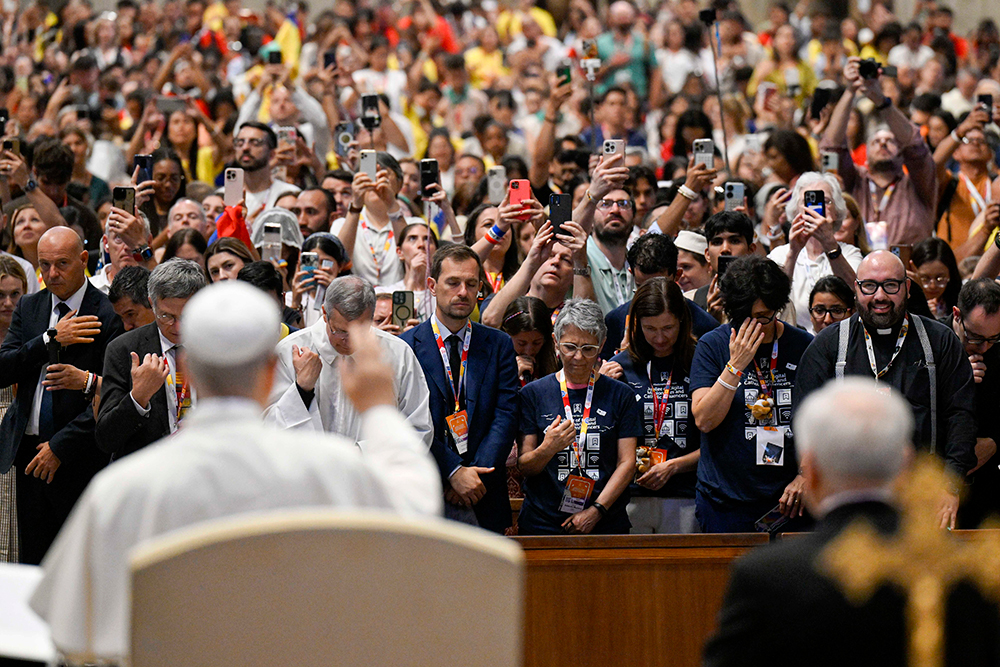
Vatican City
In an auditorium just outside St Peter’s Basilica, the Vatican’s Secretary of State, Cardinal Pietro Parolin, sat solemnly in the front row as a young crowd sang, danced and hopped around to a pop hymn. The cardinal, who is 70, was widely expected to become the pope earlier this year. Instead, he inaugurated the Catholic Church’s first social media influencer conference.
Around 1,000 influencers attended last week’s Jubilee of Digital Missionaries and Catholic Influencers. In his opening remarks, Parolin described social media as not just an instrument of communication, but ‘a way of living in the world’. The division between the real world and the virtual world is thinning, or nonexistent, for many young people, and the Church believes ‘digital missionaries’ can reach them. Some influencers host podcasts and make short explainer videos on Church history, apologetics and how to pray. Others look more like typical influencers, creating ‘day in the life’ videos which weave prayer in with studying and relationship advice.
The first influencer saint, Carlo Acutis, will be canonised next month. During his life – he died of leukaemia in 2006 at 15 – he made a website cataloguing eucharistic miracles. He’s a bit of a celebrity for young Catholics (his relics are currently ‘on tour’). At the conference, a Franciscan priest performed a rap single about him: ‘Yo, listen up, lemme tell you ’bout a kid/ Carlo Acutis, yeah the bro on the grid.’ Grainy camcorder footage of Carlo’s life features in the music video. One influencer told me these recordings made her emotional: ‘I’ve been going through old videos of my dad, and it made me feel like he was still here. It all just makes you think, this stuff has the potential to move hearts.’
Can TikTok videos move hearts? God works in mysterious ways, but I wonder if rapping priests and videos which play on the same reward pathways in my brain as the non-religious ones are reducing faith to online slop in an infinite ‘feed’. Several influencers I spoke to used the word ‘addiction’ when speaking about social media. Doesn’t that make them enablers? ‘The Church goes into the places of great infection, of great woundedness,’ said Mary Harper, a theologian who creates Catholic fashion content. ‘She can’t respond to the wound, she can’t respond to the illness, until she meets the person there.’
Still, while influencer content is offputting or cringey to many people, it has reached others. Soeur Albertine, a French nun and influencer, cited a poll saying that 78 per cent of French catechumens (adults preparing to join the Catholic Church) said they decided to be baptised thanks to social media.
After mass in St Peter’s, Pope Leo XIV made a surprise appearance to address the influencers. A group of young women shrieked with joy at the top of their lungs. People cried, and filmed themselves crying. You could hardly see him through the flock of selfie sticks and people standing on plastic chairs to get a better camera angle.
‘Faced with cultural changes throughout history, the Church has never remained passive,’ the Pope told the crowd. ‘She has always sought to illuminate every age with the light and hope of Christ by discerning good from evil, and what was good from what needed to be changed, transformed and purified.’
It is difficult to see where new technology will lead. Did Gutenberg imagine his printing press would end up splintering the Church? Did televangelists imagine they would turn into hucksters? Can digital missionaries resist the pull towards addiction and isolation?
I asked Mackenzie Hunter, a faith and lifestyle influencer, whether being on social media so often took a toll on her soul. ‘It would be easier not to be on social media,’ she admitted. ‘There would be less risk of sin and downfall, but some people are called to dive in.’ The Catholic influencers see their talent for creating content as a gift from God, which they have a responsibility to use for good.








Comments